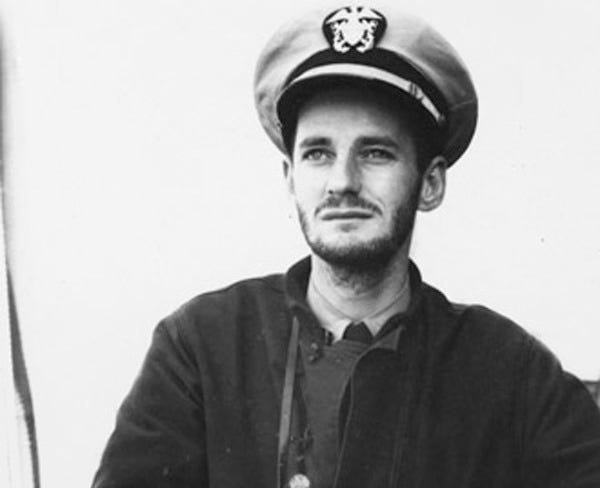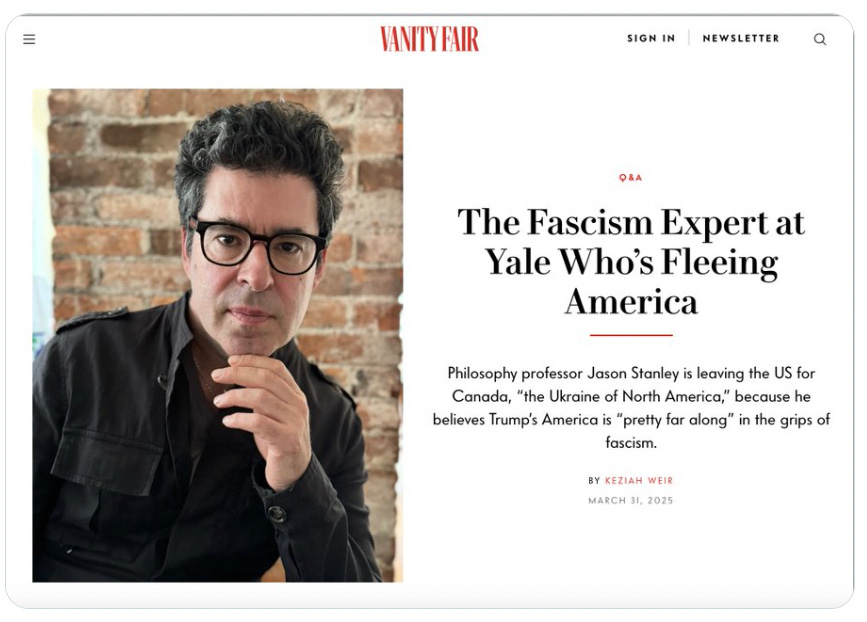Suffocating Under Seal: Closed Cultures That Gradually Close Culture
I argued in my last post that we’re living through a period of “societal ataxia” in which “the left and right side of the body have entirely lost coordination.” Under those conditions, I said, “our ‘political’ chasm is a massive breach in social mechanisms.” To add to that: I’m extremely wary of “in the old days” arguments, and I tend to say that nothing is unprecedented. But I’m about to try some form of that maneuver, and I’m all ears if you want to talk me out of it.
The collapse of cultural bridges, of political disagreement with the features of a shared culture, follows the narrowing and sealing of sensemaking institutions. Journalism, contemporary literature, movies and television, academia: the institutions that talk to us about who we are and what we’re doing together. Those institutions have been captured by groupthink, sealed off from heterodoxy, isolated as closed cultures, and captured to a remarkable degree by a variant of female-coded language and presumptions that reflexively sorts out disagreement as toxic masculinity and male anger. The central reality of contemporary intellectual social performance is prophylaxis: STAY OUT. We don’t want your kind here, MAGA trash, this is a tolerant community.
I saw all of the why would you even do that responses to my post about touring colleges, and part of my answer is that those institutions aren’t supposed to live inside a castle with the gates raised to keep invaders out. They work when they live among us; we work, the larger world works, when they live among us. Interaction is healthy for all parties.
I was at a small independent bookstore today, the exact kind of place that’s supposed to curate a culture of argument and criticism. The prominently displayed books about politics and current events were Timothy Snyder’s book about the terrifying rise of American fascism under that monster Trump, Jason Stanley’s book about the terrifying rise of American fascism under that monster Trump, Anne Applebaum’s book about the terrifying rise of American fascism under that monster Trump, and a bunch of other books by prominent journalists and professors about…okay, try to guess.
On the other side of that exchange, the books by public intellectuals offering a favorable or even neutral view of Trump and the Trump era were…not there? Maybe I just missed them. So every prominent figure moving to the cultural foreground from academia and “mainstream” journalism — every brave contrarian, every freethinking intellectual warrior rising against the prevailing fascist sentiment of the age to speak in his own voice as a free person — thinks and says the same things, the same ways, with the same evidence and the same framing and the same tone and in the same state of mind. They’re so free and brave and iconoclastic that they’re essentially identical, chanting in intellectual unison.
Forget Trump for a moment and answer this question in general: If you’re living through an era in which every prominent journalist and academic and artist says exactly the same fucking thing all the time, what kind of moment are you living in? Would you call people who all chant in unison the resistance?
Any engagement with these books reveals their emptiness. Snyder, Stanley, Applebaum, whatever: pick a book, then pick a page. See if it makes sense. Here, I spent a few nauseating minutes today with brave Jason Stanley’s book How Fascism Works: The Politics of Us and Them. Here’s a paragraph from the introduction to the paperback edition:
ICE is novel: It was created after 9/11, by the same law that created a bureau tasked with border protection: a “special force, created in an anti-democratic moment.”
I can’t calibrate the degree to which this person is a fool or a liar, but let’s go with both. The Border Patrol was created in 1924, and was itself the successor agency to a different organization that was created in 1904. You can read that history here. The post-9/11 organization that supposedly created this novel American institution merely reorganized a century-old American institution, making it not the least bit novel. Before ICE, we had INS. Yes, we had a border before 2003, and we policed it. This isn’t a novel concept at all, as it has operated in any form of practice.
You can go through that single amazing paragraph sentence by sentence and tear every last bit of it apart, at the lowest, simplest factual level. The argument isn’t wrong: all of it is wrong, every layer of fact and interpretation. This man is an absolutely enormous jackass. And he’s…important. An important public intellectual, you see.
Doubt me. Please doubt me. Go to a bookstore, pick up this book, and start flipping through pages. It’s cover-to-cover jackassery, pompous and hysterical, factually thin and interpretively insane. It is not possible to be this wrong in an open system, because people will argue you down. Paragraphs like this scream their isolation.
I am extremely agitated by this person today. Please go read his book. Don’t buy his book, but go see for yourself at a library or something how completely empty the leading minds of the age have become. There’s nothing in there. We have border security; this is like having Nazi concentration camps. This is the paragraph before the one I’ve already quoted above:
“The institutions of state terror.” Shameful, dimwitted hysteria.
So.
The single thing that seems clearest to me as an observer, though I can’t prove it, is that the funnel has narrowed. The backgrounds, class origins, and paths of important professors and journalists are converging. Life experience outside of academia and media is becoming less common. The distinguished critic and professor of literature Paul Fussell had a Harvard PhD, and he taught at the University of Pennsylvania, traveling from the Ivy League to Ivy League; he was also wounded in combat as an infantry officer in World War II. See also, for example, the behavioral sciences professor at the University of Colorado who landed under fire at Iwo Jima, or the radical Bay Area poet and publisher who also served in combat in the US Navy.
Cultural fields seem to me to be well on the way to becoming culturally sealed, which will make them increasingly irrelevant, and eventually destroy them in their current institutional forms, while also subjecting the rest of us to endless rounds of empty noise in the place of what could be an interesting vector of criticism and analysis. There’s evidence that the elite academic has always been a unicorn born to unicorns: “Faculty are up to 25 times more likely to have a parent with a Ph.D. Moreover, this rate nearly doubles at prestigious universities and is stable across the past 50 years.” But what I sense at ground level is a sharp, clear movement to social differentiation — a class performance with hardening boundaries. Talk me out of it with better evidence, but this is what it looks like to my eyes.
The arguments coming out of these institutions suggest that the people who make those arguments are becoming remarkably narrow people: cosmopolitan provincials, performers of sophistication who lack the substance of it. People who think, write, and argue in public are becoming barriers to understanding more often than they serve as bridges.
And we need the bridges. Hear this part: I’m saying that we need these people to not be fools, because we’d all be better off if they were smart and interesting. I’m not rejecting these institutions — I’m rejecting their trajectory, urgently. Imagine if we could replace Jason Stanley with a smart person who could help us to understand the world a bit better.





See also, on the same point:
https://jonathanturley.org/2025/04/04/leftist-mob-on-uc-davis-campus-destroys-conservative-group-display-and-tent/
When I read Jason Stanley and his ilk all I see is wish fulfillment and oppression envy—he is going to be a leader of the French Resistance, even if he has to conjure this from his imagination, and even if it disbanded in 1945.
Most of this is affluenza but it's also because before Trump these were pretty dull times for our campus radicals and "engaged intellectuals", no Soviet Revolution to support, no Chairman Mao to idolize, not even a Fidel or Che to toast at a banquet. How are you supposed to save the world with your theories, if the world seems to be running pretty well already?
The modern professoriate combines the obtuseness of the aristocrat, the fragile vanity of the starlet and the boundless entitlement of the rich teen who never leaves the house without Dad's credit card. They really believe deep in their souls that they're prophets with the divine right to rule and guide us, they are shocked and appalled if someone even mentions the idea of being held accountable to the taxpayers who subsidize their lush lives—Well, I never!—and most infuriating of all is when they're forced to encounter smelly peasants who think or vote differently. Fascism!
I'm sure in Jason Stanley's house he's in one room scribbling his feverish screeds while his kid is next door playing a videogame where he chooses a character, picks up a weapon and enjoys an evening fighting all the (virtual) bad guys. I wonder if they ever notice the similarities.